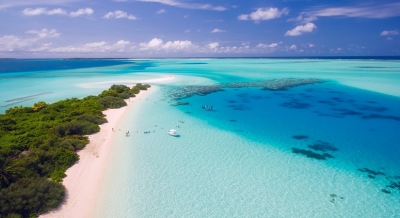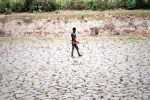
Lisbon: With climate change, bio-diversity loss and pollution exacting a devastating toll on the world’s ocean — critical to food security, economic growth and the environment — the 2022 UN Ocean Conference opened in Lisbon on Monday with a call for a new chapter of ocean action driven by science, technology and innovation.
“Sadly, we have taken the ocean for granted, and today we face what I would call an ‘Ocean Emergency’,” United Nations Secretary-General Antonio Guterres told delegates at the opening of the conference. “We must turn the tide. A healthy and productive ocean is vital to our shared future.”
The theme of the conference, “Scaling up ocean action based on science and innovation for the implementation of Goal 14: Stocktaking, partnerships and solutions”, in line with the UN Decade of Ocean Science for Sustainable Development, stresses the critical need for scientific knowledge and marine technology to build ocean resilience.
Human activities are placing the health of the ocean in peril.
According to the World Meteorological Organization’s State of the Global Climate in 2021 report, sea level rise, ocean heat, ocean acidification and greenhouse gas concentrations set new records in 2021.
Additionally, marine pollution is increasing at an alarming rate, and if current trends continue, more than half of the world’s marine species may be all but extinct by 2100.
The Secretary-General also stated there is good news with a legally binding instrument on the conservation and sustainable use of marine biological diversity of areas beyond national jurisdiction; a new treaty that is being negotiated to address the global plastics crisis that is choking our oceans; and a week ago multilateral action on display with a World Trade Organization agreement on ending harmful fishery subsidies. But he also noted much more needs to be done.
“Oceans are central in geopolitical balance of power,” said President of Portugal, Marcelo Rebelo de Sousa, in opening remarks. “Healthcare, economic resources, energy, mobility, migrations, scientific and technological development, climate change, all of this is present either in the context or in the outcome of a pandemic, of war and of crisis.”
“We must recover too much time (that) we have lost and give hope a chance, once again, before it is too late.”
In line with Sustainable Development Goal 14, human health, strong economic growth and a stable climate depend on a healthy ocean. The ocean is a vital buffer against climate change, absorbing about 25 per cent of all carbon dioxide emissions. More than 3.5 billion people depend on the ocean for their food security, while approximately 120 million people work directly in fisheries and aquaculture-related activities.
The majority of these workers live in developing countries, specifically Small-Island Developing States and Least Developed Countries.
“The United Nations proclamation of a Decade of Ocean Science for Sustainable Development (2021-2030) supports efforts to reverse the cycle of decline in ocean health and gather ocean stakeholders worldwide behind a common framework that will ensure ocean science can fully support countries in creating improved conditions for the sustainable development of the ocean,” said President of Kenya, Uhuru Kenyatta, in his introductory statement.
More than 20 heads of state and government together with thousands of young people, business leaders, scientists and civil society representatives, will present fresh, bold and innovative solutions to ignite transformational change to effectively address the challenges the ocean is facing.
In addition to the plenary sessions, there will be eight Interactive Dialogues, which will deep dive into salient areas such as addressing marine pollution, minimizing and addressing ocean acidification, deoxygenation and ocean warming and promoting and strengthening sustainable ocean-based economies, in particular for Small Island Developing States and Least Developed Countries. – IANS



















